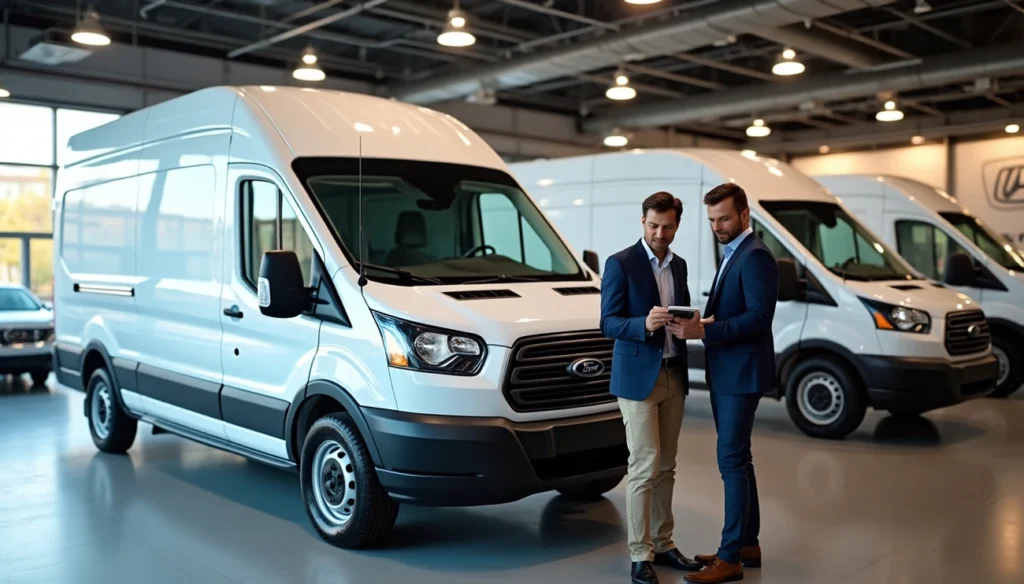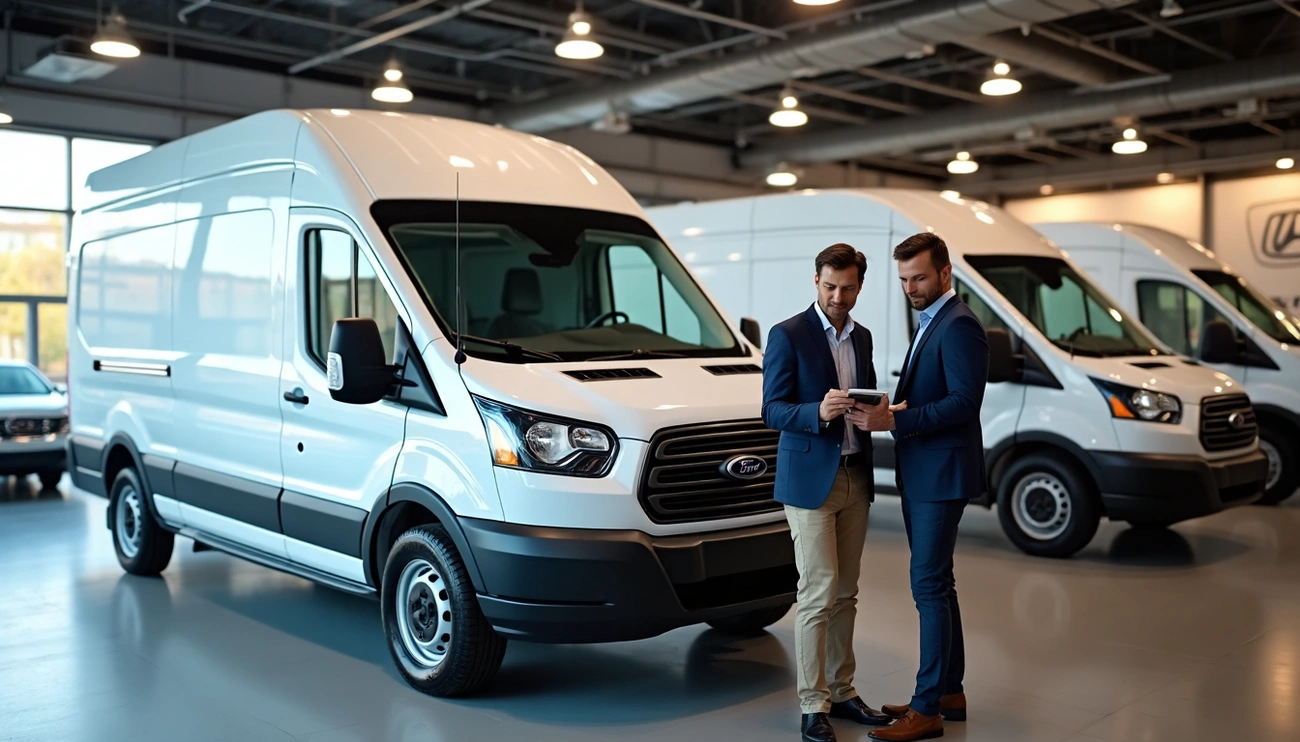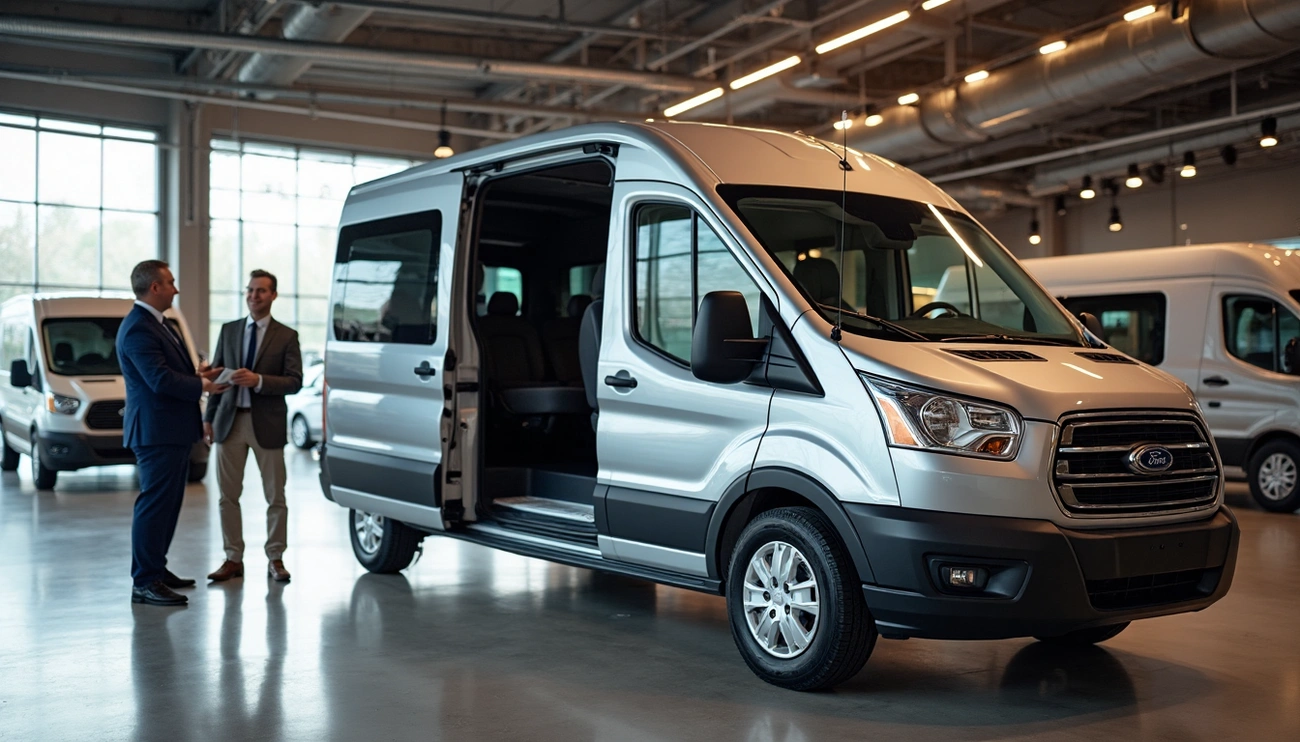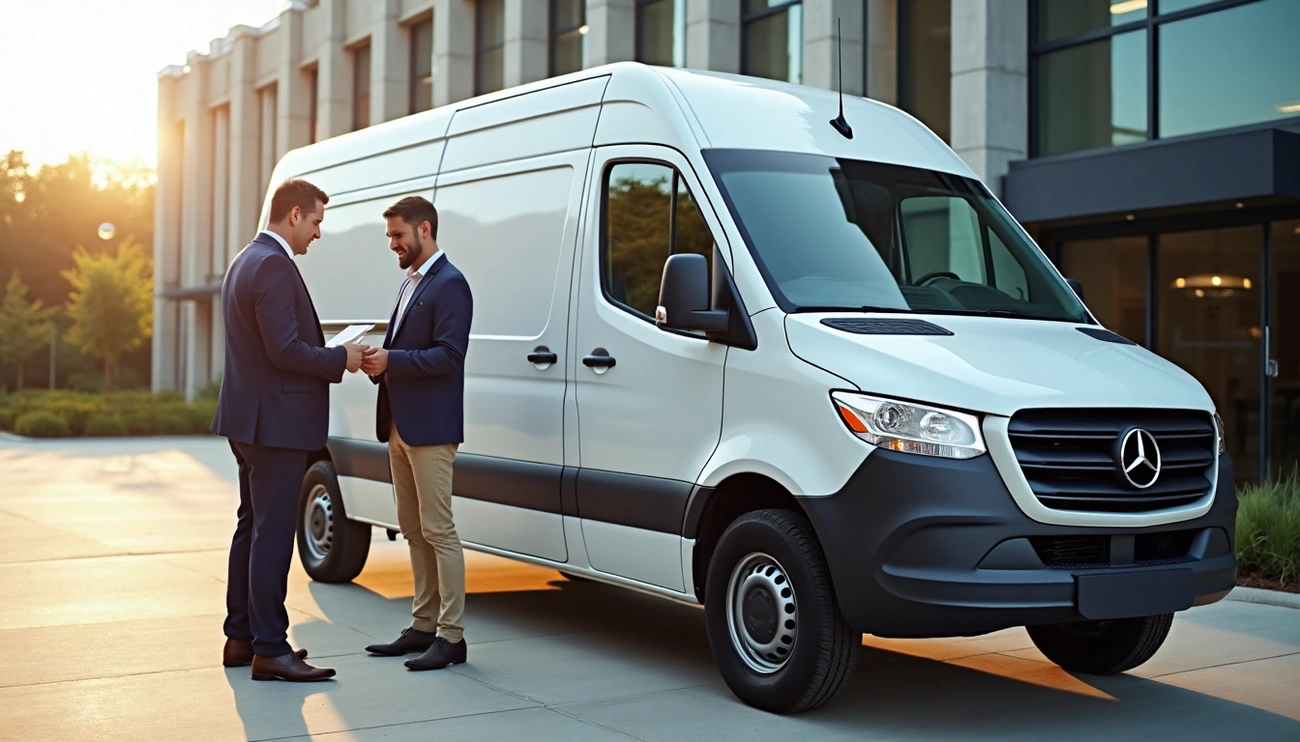Used Van Finance: Smart Strategies
Need used van finance on a van but short on cash for a big upfront payment? You’re definitely not alone. Smart business owners and individuals are discovering no deposit van leasing—drive away in a quality van without paying anything upfront. Source
Whether you’re a tradesperson needing reliable transport or a delivery business growing your fleet, used van finance no deposit options open doors to vehicle ownership. Quick approval if you’ve got decent credit, plus contract terms from 12 months to five years mean you can pick a timeline that suits your budget. See electric van finance
Better yet, when your 12-month term wraps up, you’ll have several paths forward. This flexibility makes second hand van finance a hit with cost-conscious entrepreneurs who want dependable vehicles without emptying their working capital. See business van finance
Ready to get the facts? This guide covers everything about financing a pre-owned van. From decoding different finance deals to boosting your approval odds, we’ve packed in practical strategies that could have you driving your ideal van sooner than you think. See self employed van finance
Understanding Used Van Finance Options
Getting your head around used van finance means knowing your options. Since financing a pre-owned commercial vehicle works differently from buying new, here’s what you need to make a smart choice.
What is second hand van finance?
Second hand van finance covers various payment methods that let you spread the cost of a pre-owned van. Skip the full price upfront—pay an initial deposit plus fixed monthly payments over an agreed term instead. This makes quality used vans affordable and manageable for businesses and individuals alike.
The process? Simple. Find your ideal used van, apply online in just a few steps, get your personalized quote. Finance providers look at the vehicle’s value, depreciation rate, and interest charges—similar to car finance setups. See van finance for new business
For businesses, used van finance delivers solid advantages: lower costs than new vehicles, reduced depreciation rates, and typically cheaper insurance premiums. Plus, the used market offers wider selection of models and features, making it easier to find exactly what you need. See van finance lease
How does used van leasing differ from buying? used van finance
The key difference? Ownership. Buy a van (through finance or outright) and you eventually own it. Lease means you’re essentially renting for a fixed period. See van finance companies
Key differences:
| Aspect | Buying | Leasing |
|---|---|---|
| Ownership | You own the van after final payment | You never own the van |
| Mileage limits | No restrictions | Usually has annual mileage limits |
| Maintenance | You’re responsible for all costs | Often included in lease packages |
| Long-term costs | More cost-effective long-term | Fixed monthly costs, good for budgeting |
| Flexibility | Can sell or modify as needed | Must return in good condition |
Buying outright with your own cash generally wins long-term. But leasing offers fixed costs that help with budgeting and prevents surprise repair bills as the van ages.
Common types of used van finance deals
Several finance options await, depending on business, personal use, or both:
Personal Contract Purchase (PCP) lets you pay an initial deposit plus fixed monthly payments over a set period. A big chunk of the cost gets deferred as a balloon payment at the end. When your agreement ends, pay the final sum to own the van, hand it back, or start fresh.
Hire Purchase (HP) means paying a deposit upfront plus fixed monthly installments covering the total vehicle cost. Once all payments are done (including a small “option to purchase” fee), you become the legal owner. Perfect for those who definitely want to own the van eventually.
Personal Contract Hire (PCH) is actually leasing, not buying. Pay a deposit and monthly installments that may be lower than other finance deals, but you never own the van. Great for people who prefer changing vehicles regularly.
Conditional Sale works like HP but commits you to buying the van at the end—no return option. No option-to-purchase fee, and you typically secure the vehicle with cash deposit or part exchange.
Finance Lease proves popular for business customers with smaller fleets. You control the vehicle for a contractual period while making fixed monthly payments. At the end, extend the lease, return the vehicle, or sometimes sell it on behalf of the finance provider.
Both business and personal users can access these financing options, though some deals are exclusively for business customers. Your choice should match your specific needs, budget constraints, and whether you’re using the van for personal or commercial purposes.
Eligibility and Requirements
Got questions about what you need to qualify? Understanding eligibility criteria matters before you apply for used van finance. Here’s what lenders look for and the factors that shape your application outcome.

Do you need a deposit for used van finance?
Putting down a deposit can boost your approval chances, but plenty of finance options exist without requiring large upfront payments. Over 90% of van finance deals can be arranged without a deposit. Fair warning though—choosing a no-deposit option typically means higher monthly payments since you’re borrowing the full vehicle amount. Source
Short on funds? Low deposit options are worth exploring. These agreements might come with slightly higher interest rates, but they let you secure your van with minimal initial investment. Some lenders might ask for VAT to be paid upfront, but finance providers can often help arrange loans that cover this cost too. See self employed van finance
Saving for a larger deposit offers real advantages—reduced monthly payments and potentially better interest rates. This approach shows financial stability to lenders, which can be particularly helpful if your credit history isn’t spotless. See business van leasing
How credit score affects your application
Your credit score directly impacts both eligibility and the terms you’ll receive. UK credit scores typically range from 300 to 850, with higher scores showing better creditworthiness. For used van finance, a score of 650 or above is generally considered good and increases your chances of securing favorable terms.
Different credit bureaus use varying scoring systems:
| Rating | Experian | Equifax | TransUnion |
|---|---|---|---|
| Very Poor | 0-560 | N/A | 300-600 |
| Poor | 561-720 | 300-579 | 601-657 |
| Fair | 721-880 | 580-669 | 658-719 |
| Good | 881-960 | 670-739 | 720-780 |
| Excellent | 961-999 | 800-850 | 781-850 |
Check your credit report for accuracy before applying. Fixing errors promptly can significantly improve your score and consequently your loan terms. Despite its importance, your credit score isn’t the only factor lenders evaluate—they also consider financial stability and business trading history.
Used van finance for poor credit applicants
Poor credit doesn’t automatically disqualify you from used van finance. Specialist lenders exist who focus on helping applicants with less-than-perfect credit histories, though usually with higher interest rates.
Hire Purchase (HP) agreements have the highest approval rates for people with poor credit. These agreements are secured against the van itself, reducing the lender’s risk. Making regular payments on an HP agreement can actually help improve your credit score over time.
For those with specific credit issues:
- Bankruptcy: Most specialist lenders require you to be discharged from bankruptcy for at least 6 years
- CCJs or IVAs: While these make approval more difficult, specialist lenders may still consider your application
Want to improve your chances of approval with poor credit? Consider offering a larger deposit, finding a guarantor with strong credit, or focusing on improving your credit score before applying.
Pros and Cons of Financing a Used Van
Weighing up your used van finance options? Smart move. Let’s break down the real benefits and potential pitfalls before you make this key business decision.
Advantages of 2nd hand van finance
Cash flow stays healthy – that’s the biggest win with van financing. Spread those payments over time and keep more cash free for other business needs. You’ll typically need far less money upfront compared to buying outright. Perfect for small businesses working with tight capital.
Get a better van than you thought possible. Financing opens doors to higher-quality, more modern models that might otherwise stretch your budget too thin. A smarter-looking van can make a real difference with customers and boost your business reputation.
Predictable monthly costs make budgeting a breeze. Fixed installments mean no nasty surprises. Plus, if you’re VAT registered, those monthly lease payments can be claimed back as tax-deductible expenses.
Potential drawbacks to consider
Interest costs bite. Those monthly payments include interest charges that shift based on your credit score, loan term, and chosen lender. A used van finance calculator helps spot the most cost-effective deal and stops you overpaying.
Depreciation happens. Your van’s value drops over time, and you might end up paying more than its market worth due to interest. Keep it well-maintained if you’re planning to resell or upgrade later.
Repairs crop up more often with second-hand vans, adding to your overall expenses. Unlike new vehicles with solid warranties, used vans often come with limited or no warranty coverage. Get any used van thoroughly checked and review its service history before you commit.
When is leasing better than buying?
Regular upgrades matter to your business? Leasing works like upgrading your mobile phone – drive the latest model every few years without worrying about resale values.
Maintenance headaches disappear with many leasing packages. You’ll often get maintenance coverage that wouldn’t come with outright purchase. This can seriously cut unexpected repair costs as your van ages.
No depreciation worries. Simply return the vehicle at lease end and choose your next van. Great for businesses focused on core operations rather than managing vehicle assets.
Your choice between financing or leasing should match your business goals, financial situation, and how long you plan to keep the vehicle.
Comparing Finance Deals and Lenders
Finding the right deal means shopping around and knowing your options. Here’s how to make smart choices when evaluating used van finance packages.
How to use a used van finance calculator
Finance calculators give you a clear picture of monthly payments before you apply. Here’s how to get the most from these tools:
- Enter your desired borrowing amount (typically between £1,500-£50,000)
- Input your credit rating (from very poor to excellent)
- Select your preferred repayment term (usually 24-60 months)
- Review the estimated monthly payment
Most calculators show how different variables affect your payments. For instance, borrowing £8,000 over 60 months might cost approximately £163 monthly with excellent credit at 8.9% APR. These calculations help establish realistic budget expectations, though final terms depend on full credit checks and specific vehicle details.
Finding the cheapest used van finance
Securing cost-effective financing takes some legwork:
Shop around rather than accepting the first deal you find. Interest rates and terms can vary significantly between providers.
Check your credit report before applying—your score directly impacts the rates you’ll get. A better score means better terms.
Come prepared to negotiate. Lenders may offer improved rates if you can show strong credit history and stable business finances.
Get your paperwork ready including financial statements and business ownership proof to speed up the application process.
Used van finance bad credit direct lender vs. broker
When credit’s a challenge, knowing the difference between direct lenders and brokers matters:
Direct lenders offer their own finance agreements directly to customers. Straightforward access, but you’re limited to that particular lender’s products.
Brokers work with numerous UK lenders, giving you access to a wider selection of finance options with one application. This variety proves particularly valuable for those with specific requirements or challenging credit histories.
Brokers can find payment plans tailored to your budget by exploring multiple lenders, potentially discovering better interest rates than you might find on your own. Some specialize in poor credit car finance alternatives, making them valuable for applicants with previous financial difficulties.
Got complex needs? Consulting with financial advisors can provide additional guidance through this decision-making process.
Smart Strategies to Get Approved
Getting approved for used van finance takes smart preparation. Even with less-than-perfect credit, the right approach can boost your chances of driving away in your ideal vehicle.
Improving your credit before applying
Check your credit report before submitting any application. Hunt for mistakes or inaccuracies that could drag down your score. Fix these errors fast—it can give your credit score a real boost and improve your approval odds. Grab your credit report from major agencies like Experian, Equifax, and TransUnion.
Try these practical steps to strengthen your creditworthiness:
- Get on the electoral roll—credit agencies check this during assessment
- Skip multiple credit applications in a short span, as these hurt your score
- Set up direct debits for existing bills to avoid late payments
- Don’t withdraw cash on credit cards—lenders see this as poor money management
Choosing the right repayment term
Pick a loan duration that balances monthly affordability with total interest costs. Longer terms mean smaller monthly payments but more interest overall. Shorter terms need higher monthly payments but cut the total interest you’ll pay.
Your choice should match your monthly budget and long-term financial goals. Crunch the numbers on your regular income and expenses to figure out how much you can realistically put toward van repayments without stretching yourself thin.
Tips for getting used van finance guaranteed
Despite what some ads claim, truly “guaranteed” van finance doesn’t exist. Consumer protection laws, specifically the Consumer Credit Act of 2010, mean lenders must assess individual circumstances before guaranteeing loans.
Still, you can maximize your approval chances. Save for a bigger deposit—it cuts the loan amount needed and shows financial stability. Poor credit? Specialist lenders consider applications case-by-case. Some let you apply with a guarantor—someone who agrees to make payments if you can’t.
Consider chatting with financial advisors or accountants for guidance through the application process. Their expertise helps identify the most suitable financing option for your specific business needs.
Conclusion
Used van finance opens doors for businesses and individuals who need reliable transport without draining their cash reserves. We’ve covered the main financing routes—from Hire Purchase to Personal Contract Hire—each with unique perks based on your specific needs and future plans.
Your credit score matters for the terms you’ll get, but don’t worry if yours isn’t perfect. Specialist lenders work with challenging credit histories every day. Plus, many people secure funding without big deposits, making quality vans accessible even with limited upfront cash.
The benefits go beyond just affordability. You’ll preserve cash flow, access better vehicles, and enjoy predictable monthly costs for easier budgeting. Sure, there are downsides—interest costs and potential repair bills as the van ages.
Before you sign anything, compare multiple offers using those handy calculators. This comparison helps you spot the most cost-effective option for your situation. Better yet, work on boosting your credit score first—it can seriously improve your chances and get you better terms.
The right financing solution depends on your business needs, budget, and long-term goals. Whether you buy through finance or lease, these flexible options mean you can find something that works for your operations.
Armed with this guide, you can tackle used van finance with confidence. Make an informed choice that gets you the transport you need without compromising your financial stability.
FAQs
Q1. What are the main types of used van finance options available? The main types include Personal Contract Purchase (PCP), Hire Purchase (HP), Personal Contract Hire (PCH), Conditional Sale, and Finance Lease. Each option has different terms regarding ownership, payments, and flexibility.
Q2. Do I need a deposit for used van finance? While a deposit can improve your chances of approval and potentially lower your monthly payments, many finance options are available without requiring a large upfront payment. Over 90% of van finance deals can be arranged without a deposit.
Q3. How does my credit score affect my used van finance application? Your credit score directly impacts both eligibility and the terms you’ll receive. Generally, a score of 650 or above is considered good and increases your chances of securing favorable terms. However, even with poor credit, specialist lenders may still consider your application.
Q4. What are the advantages of financing a used van versus buying outright? Financing a used van allows you to preserve cash flow, access higher quality vehicles, and benefit from fixed monthly payments for easier budgeting. It also offers potential tax advantages for businesses and doesn’t tie up large amounts of capital.
Q5. How can I improve my chances of getting approved for used van finance? To improve your chances, check and correct any errors in your credit report, save for a larger deposit, consider using a guarantor, and avoid multiple credit applications in a short timeframe. Registering on the electoral roll and setting up direct debits for existing commitments can also help.




